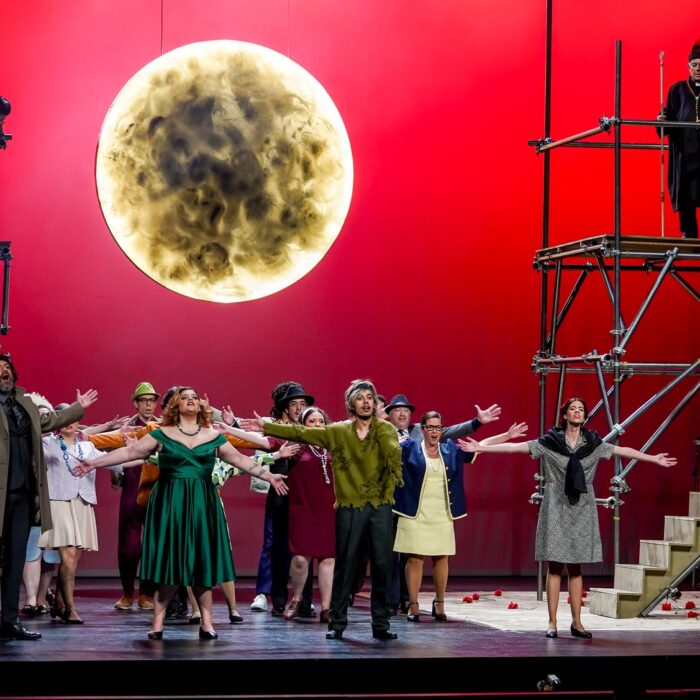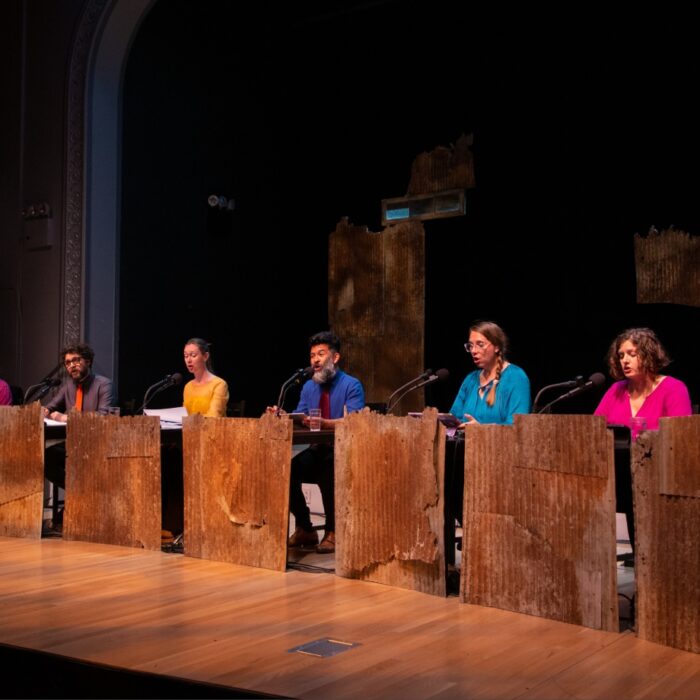
Curtis Institute of Music 2023-24 Review: The Cunning Little Vixen
A Beautiful Evening Featuring Promising Young SIngers
By Francisco SalazarOn May 2, the Curtis Institute of Music opened its final production of its 2023-24 season, a presentation of Janáček’s “The Cunning Little Vixen,” a poetic parable that celebrates the eternal cycle of life and death.
In the context of the Czech composer’s more dramatic works, “Vixen” is rarely performed, which makes any opportunity to enjoy its complexities a welcome one. And this evening was no different, the result being an effective production featuring promising voices.
Simplicity
For this production, director, and playwright John Matsumoto Giampietro directed and placed the action in a world of magical realism. He fused the forest and a contemporary rehearsal studio. While most of the action takes place in the forest, you can see some elements of that rehearsal space whether it was the chairs in the middle of the action or the mirror that comes in and out of the scene, especially in the Act two duet where Vixen Sharp Ears questions her beauty. Then there are the characters themselves which are costumed in more humanlike ways. They move about the scenes playing with some of the animal elements but they fuse with the human characters seamlessly and it shows how humans and animals are one in nature.
Rising Stars
In the lead role, Sarah Fleiss displayed a gorgeous soprano voice with varying colors. In the first act, she brought a lighter colors that displayed the slickness and innocence of her character. But when she meets Fox Gold Stripe, that tone turned to more lushness as she displayed shyness and hesitance at first, followed by desire, tenderness, and love. Her voice expanded, filling the auditorium and bringing all these new emotions to the fore. There was also some gorgeous piano lines, especially as she questioned herself in front of the mirror. Then in Act three, as she confronted the Gampkeeper, that sense of fear from the beginning was gone and she displayed defiance, walking around the stage and throwing the chairs. All the while, she brought out a powerful soprano that emphasized her willingness to defend herself from anything. It was a complete character development.
In the role of Fox Gold Stripe, soprano Emily Damasco opened with a coquettish timbre that also evolved into a more opulent vocalism. The voice continuously opened up as the aforementioned extended duet developed. While there was some tendency towards a thicker vibrato, Damasco had some moments of pianissimos that were beautifully sung and when she crescendoed into her higher range, the voice also bloomed. Throughout the scene, Damasco’s visage was entirely focused on Fleiss creating compelling chemistry during this scene. That made Damasco’s final entrance when she finds Fleiss’ Vixen dead all the more moving.
In the role of the Gamekeeper, bass-baritone Evan Gray showcased a rich timbre, especially in his final scene where he returns to the forest. Throughout the evening he demonstrated a booming sound that was both forceful and heroic and that filled the hall. But it was in his final scene where he got to show his legato line to the fullest and bring out a nostalgic quality. The voice was smooth in its middle section and vibrant in the highs. The confrontation in Act three between Fleiss and Gray was also spectacular they both showcased an intensity to their voices and created an unpredictably dynamic scene.
As Harašta , Morgan-Andrew King brought an ominous hue to his Act three scenes, while soprano Katie Li brought out a resonant timbre to her Lapák. Robert Frazier, Katie Trigg, and Landry Allen also displayed promising voices in their distinctive roles.
For this production, the Curtis Institute collaborated with the Philadelphia Boys and Girls Choirs which featured soloists Nimi Oguntunde, Ella Boonn, Genaro Medina, and Evan Zhang. They all brought an endearing quality to their roles.
Great Support
In the pit, conductor Vinay Parameswaran mined Janáček’s score for its wide-ranging colors. You could hear the innocence and playfulness of the forest as well as the ominous intrusion of the humans. Then in Act two’s duet, he brought out the “verismo” colors of the duet that accompanied the soloists beautifully. There was restraint that developed into passionate playing from the orchestra.
The final chorus of Act two was also memorable as the tone changed to joyfulness that crescendoed vividly and even had some of the audience humming the melody during the intermission. The opera’s final crescendo was also cathartic and emotional.
In all this was a wonderful evening that showcased voices that audiences will likely hear in the coming years on some of the great stages in the world.


